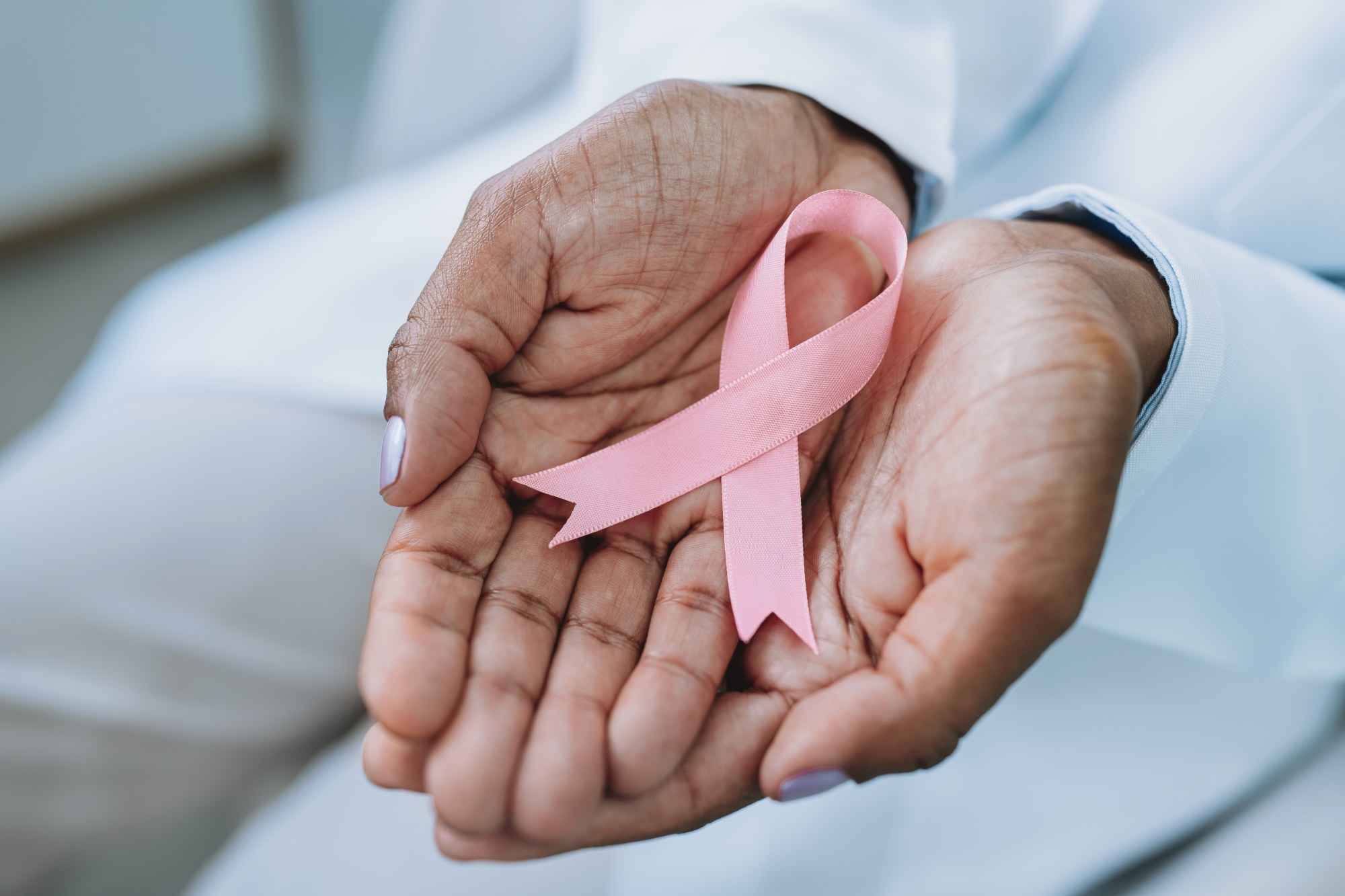Life in limbo. This is how many people would describe their breast cancer experience. Shuffling from one appointment to the next. Meeting with this specialist then that. Starting this treatment before going on another. In the meantime, always waiting—waiting for answers, for results. Waiting for what comes next.
With cancer, it can be easy to get caught up in the future—or the past. Many patients find themselves longing for life before cancer: the freedom and fun they had, the sense of control and confidence they felt, and the everyday joys and pleasures they experienced. Others, meanwhile, play out their lives weeks—if not months—in advance, counting down to the next appointment, the next scan, or the day they might finally—hopefully—hear the words “cancer-free.” Always looking back or ahead. Never in the now.
This pattern of waiting for life to “return” or “resume” is something Brianne, 54, knows all too well. A two-time breast cancer survivor, she remembers the hardest part of her journey not as the treatment itself, but the suspended time in between.
“It never felt like that time was truly mine,” she recalls. “I always had to check in with one specialist or another. Make sure everything was going to plan. Wait around to hear back about how scans came back or how treatment went—when the next scan or procedure would take place.”
Beyond that, she says, there were the symptoms and side effects that consumed the rest of her spare time. “I had a lot of trouble sleeping throughout my experience,” she explains. “The second time around, I had to get lumpectomies on both sides—and as a side sleeper, that made it difficult for me to get comfortable. Then, because of the medication I was on, I experienced a lot of back pain, so that wasn’t really an option, either.”
But the worst of it, she explains, was the complete loss of control she felt. “Of course, I am deeply grateful to my doctors—I owe my life to them,” she explains. “I trusted that they knew what they were doing and had my best interests in mind the entire time. Still, it’s really difficult to feel like decisions are being made for you, not with you. It can make you feel almost like a doll or a puppet, expected to just follow plans that are never fully explained. I just had to go along with whatever was decided, and that was really difficult—not having any agency over what happened to my own body.”
“Looking back, that was the hardest part. Feeling like you’re never really there—even though all of this is happening to you. You’re just another prop the medical team is working with. And again, I’m so grateful to them. But I wish I had had the opportunity to ask questions—or at least some way to feel informed and involved. To feel like my own body and my own treatment weren’t just things being done to me, but something I could participate in with some sense of dignity.”
Survival is Only Half the Battle: The Hidden Challenges of Breast Cancer Recovery
Brianne’s experience is one shared by millions of women across the globe. Thanks to major advances in treatment over the past few decades, breast cancer survivorship is high, and the question for most patients is no longer whether they’ll survive cancer—but how they’ll survive its treatment and aftermath.
As many survivors will attest, simply surviving breast cancer—as in, coming out of the other side of treatment cancer-free, or, for those with metastatic disease, with life-sustaining treatment in place—is only half the battle. For patients like Brianne, the real challenges lie in navigating the loss of control, agency, or autonomy that comes with treatment; learning how to reclaim their time, their lives, and—especially—their bodies, after having spent so many weeks if not months feeling detached from it all.
This is the reality of what it’s like to have breast cancer. This is what survivors need support with. Not so much moving past the fear of losing one’s life—which, for many, has fortunately been allayed—but the fear that it will never feel fully theirs again, that it may never be fully restored to their hands.
It was with this reality in mind that Workplace Options (WPO) developed Cancer Care Compass, a human-centered, clinically guided support program for employees navigating life with—and beyond—cancer.
Cancer Care Compass: Trusted, Human-Centered Support for Holistic Healing
A breast cancer diagnosis comes with a lot of unknowns—touching every corner of a person’s life. Beyond the immediate concern for one’s survival, there are questions about what this means for one’s career, finances, relationships—identity.
Breast cancer often strikes at the most visible markers of womanhood. Breast loss from surgery, hair loss from chemotherapy, and the loss of menstruation or fertility to treatment can all sever a woman’s connection to her own femininity. Sexual health changes, too, can bring shame and uncertainty. The invasive nature of treatment—coupled with its lasting physical side effects—can leave many survivors feeling disconnected from or ashamed of the very bodies that carried them through.
“How will this change the way I see myself—or the way others see me?”
“What will intimacy look like after this? Can I be intimate with someone?”
“Will I still be able to have children—and if not, does that make me less of a woman?”
These are questions many breast cancer survivors have, but oftentimes feel too scared or embarrassed to ask.
And then there are broader questions about work and recovery:
“When can I return to work?”
“When will I have the energy I once had? How can I get it back?”
“Will I be able to manage the same responsibilities as before? How can I balance my health with my obligations?”
“How can I manage symptoms and side effects? Will they ever go away?”
“Will life ever start to feel normal again?”
It’s these questions that cause the most distress for survivors; it’s these concerns they need help navigating the most.
Yet while doctors and surgeons do their best, they don’t always have the bandwidth—or the specific expertise—to address every question a patient may have. Sometimes they can provide informed referrals, but time is limited. Other times, patients may never form the kind of bond that makes it easy to raise such deeply personal or sensitive questions.
That’s where Cancer Care Compass makes a difference. With a dedicated Cancer Care Coordinator—a clinically trained professional who walks alongside each employee throughout their cancer journey—survivors gain a single, trusted source they can always turn to for answers, guidance, and support for all their concerns.
The Cancer Care Compass program recognizes that cancer is more than a physical illness—and that real recovery extends well beyond the body. True healing happens when survivors are supported emotionally, vocationally, spiritually, financially, and socially—when they feel empowered and capable to make a full return to their lives with no restrictions, doubts, or concessions.
Through personalized, identity-centered support, the program helps survivors confront their greatest challenge head-on: reclaiming their lives, rediscovering their purpose, and reconnecting with who they truly are, beyond the labels of ‘patient’ or ‘survivor.’
Blending psychological care with vocational reintegration coaching, matched referrals, and work-life support, Cancer Care Compass can assist breast cancer survivors with:
- Managing the mental and emotional impact of cancer—recurrence fears, anxiety, depression, PTSD
- Identifying and practicing positive coping strategies to facilitate healing—mindfulness, meditation, journaling, yoga, art therapy
- Creating personalized recovery plans—encompassing nutrition, exercise, sleep, and more—that help them care for and reconnect with their bodies
- Locating trusted information and community resources on survivorship concerns, including sexual health and intimacy
- Connecting with local or virtual support groups to reduce isolation and build peer connections
- Charting a confident return to work—steadily reclaiming roles and responsibilities
- Collaborating with managers on practical, sustainable reintegration plans
Bridging the Gap: Connecting Survivors to the Support They Need—When They Need It Most
For breast cancer survivors, the road to recovery shouldn’t be as hard as the journey that got them there—and yet, for many, it is. This is unconscionable. All the support survivors need is right there: counselors, coaches, community resources, support groups, managers, peers, and the list goes on from there. It’s just a matter of connecting survivors to that support when and where it’s needed most.
With Cancer Care Compass, employers can fulfill that duty by connecting employees with holistic support available throughout their cancer journey—from diagnosis to recovery.
Get started today on building a more supportive workplace for those impacted by breast—and all types of—cancer. Connect with Workplace Options to learn more about the Cancer Care Compass program.
Disclaimer: Some details in this article have been fictionalized for storytelling purposes, but are based on real events.





































